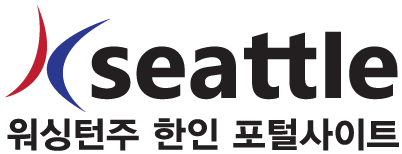성공적인 자녀교육 11 - 학업의 성공은 가정에서 시작
작성자
손승호
작성일
2007-10-11 00:31
조회
4975

학업의 성공은 가정에서 시작
(School Success Begins at Home by Tom Loveless)
교육은 많은 시간의 투자를 필요로 한다. 인간은 자신이 많은 시간을 투자하고 할애한 것들을 오래 간직하기 마련이다. 그래서 피아노 연주나 콜프이 스윙 기술을 익히기 위해 많은 시간들을 투자해야 능력이 발휘되는 것 처럼 학업에서의 성공또한 많은 시간 투자가 요구 되는 것이다. 그러나 미국의 학생들은 학급을 떠나서 공부에 시간을 할애하는 비중이 유럽 선진국 보다 부족하다.
미국의 고교생들은 한주일 동안 학교에서 보내는 시간, 잠자고 먹고 하는 시간 이외에 평균 60시간의 여가 시간이 있다고 한다. 그중에서 숙제하는 시간은 일주일에 6시간 이라고 하는데 이는 학생들의 여가시간의 1/6에 해당하는 것이다.
그렇다면 우리의 자녀들이 여가시간을 어떻게 활용하고 있는지, 그들의 우선적으로 할애하는 것들이 무엇인지 재 검토 해보아야 할 것이라 생각한다.
미국에서 자녀교육에 대한 열기가 뜨겁다. 부시 행정부까지 교육 개혁을 중요한 현안으로 다루고 있다. 전문가 들은 그러나 교육 개혁에 앞서 ‘부모의 자식교육’이 가장 중요하다고 입을 모은다. 워싱턴 DC 의 교육정책개발연구소인 브라운센터 소장인 톰 러블레스 (Tom Loveless)박사가 ‘학업의 성공은 가정에서 시작된다(School Success Begins at Home) 는 내용을 발표, 화제가 되고 있다.
다음은 일반 부모가 알아야 할 5가지 문제점에 대한 그의 조언.
문제 1: 숙제 - 자녀의 숙제의 중요성을 모르는 부모가 너무 많다. (Homework)
숙제를 매주 중요하게 강조해야 한다.
10여년 전만 해도 학생들이 숙제를 하는 일이 등안시 하는 경향이었지만, 최근에는 숙제의 중요성이 매우 강조되고 있다고 한다. 실제로 6학년 - 12학년 학생들에게 있어서 숙제는 학업을 증진시키는 지대한 역할을 하고 있다고 한다.
문제 2: 친구들고 노는 시간 (Socializing with friends)
노는 시간이 길어지면서 학업이 뒤쳐진다.
청소년의 사회성을 연구하고 있는 탬플대학교(Temple University)의 Lawrence Steinberg 교수는 미국의 청소년들이 여가시간 활용에 대해서 발표하였습니다. 그의 연구에 따르면 한주일 동안의 여가 시간 중에서 미국의 10대들은 1주일에 평균 20-25시간 가량 친구들과 노는데 사용한다. 이처럼 노는 시간이 지나치게 길어짐에 따라 학업능력이 저하되는 것을 사실이다.
그렇다면 청소년들이 학업능력 향상에 시간을 보내는 것 보다 친구들과 노는 것에 더 많은 시간을 보내는 이유는 무엇일 까? 설문받은 학생들의 1/5의 학생들은 자신이 혼자 공부하는데 시간을 더 보내게 되면, 친구들이 자신을 어떻게 볼까? 하는 점을 더욱 걱정한다는 사실이다. 또한 1/3의 친구들만이 좋은 학교 성적은 매우 중요한 것이라고 말해 준다고 한다.
그렇다고 해서 아이들을 자기 방에 가두어 놓고 공부를 강요할 수는 없다. 이제 학교와 부모들은 끊임없이 10대들에게 큰 기대감을 갖고 있다는 뜻을 꾸준하게 전달해야 한다. 의외로 많은 10대들은 그들의 부모들이 자신들에게 큰 기대감을 주문하는 일도 별로 없고, 자신들이 높은 이상을 품고 웅지를 펴도록 도전을 주는 경우들이 매우 희박하다고 말하고 있다.
문제 3: 특별활동 (Extracurricular activities)
스포츠에 너무 관심을 쏟는다. - 학교 공부가 부실하다면 스포츠 활동을 줄인다.
스포츠활동, 특히 야구, 풋볼, 농구, 사커등은 미국 문화권에 중요한 부분을 차지하고 있다. 미국의 브레인이자 지성인 연구소인 Brookings Institution 에서 미국 고등학교에 유학하고 있는 외국 유학생들에게 설문 조사를 했다고 한다. (2001년) 설문 조사에 응한 유학생들의 2/3의 답변은 “미국 학생들은 공부보다 스포츠에 더욱 삶에 비중을 두고 있다.”는 답변을 하였다고 한다.
실제로 미국 고교생들은 1주일 평균 10-15시간을 각종 스포츠를 비롯해 오케스트라, 밴드, 드라마 등의 특별활동에 할애하고 있다.
적절한 참여는 학업진작에 도움을 주겠지만, 학업이 부진한 학생들이라면 과감하게 학업향상에 더욱 많은 비중을 두어야 한다. 일주일에 20시간 이상을 특별활동에 사용한다는 말은 다른 활동을 적절하게 균형을 맞추지 못하고 다른 활동에 쓰는 시간 마져 써버리는 결과가 되기 때문에 학업능률이 현저하게 떨어지기 마련이다.
성인이 되어서의 소득수준, 건강, 알코올 중독, 청소년 임신, 청소년 부모, 범죄율등은 통계학적으로 교육과 긴밀한 관계가 되어 있는 것이지, 공을 드리볼 하거나, 패스하는 능력과 긴밀한 관계가 되어 있는 것이 아닌점을 생각해보아야 한다.
문제 4: TV 시청을 어떻게 해야 하나
시청을 완전히 막지는 말되 제한한다.
TV 시청은 학업 성취도를 저하 시키는 한 요인이다. 그러나 하루 1시간 정도 시청하는 학생은 전혀 시청하지 않는 학생에 비해 학업 성취도가 높다는 것이다. 이런 학생일수록 자신의 시간관리 능력이 뛰어나고 한편으로는 TV를 통해 자신이 필요로 하는 정보를 얻기 때문이다. 그러나 자녀가 TV에 매달린다면 반드시 시청시간을 제한 시켜야 한다.
문제 5: 파트타임 근무와 학업은 어떻게 병행하나.
학기에는 주중 근무시간은 줄인다. 미국 고교생들의 3분의 2 가량이 파트타임직을 갖고 있는 것으로 나타나고 있다. 이들의 1주일 평균 노동시간은 15-20시간이다. 자녀들이 이처럼 학기 중간에 많은 시간을 파트타임 일하는데 보내는 것은 다른 선진국가들에 비해서 아주 드문 현상이다. 또한 자녀들이 교육에 더욱 많은 시간을 보내지 못하게 되기 때문에 전적으로 부모들이 통제시켜야 한다.
특히 55%의 12학년 학생들이 평균 하루에 3시간 정도 파트타임 일을 하고 있다고 하는데, 스위스와 스웨덴에서는 같은 12학년 학생들의 10% 미만이 파트타임 일을 하고 있다고 한다.
이와 관련해 혹자는 청소년에게 책임감을 심어주고 실제 사회를 경험하게 해준다고 보고 있다. 그러나 이기간 동안에 학교에서 제공하는 가장 도전 적인인 코스들을 성공적으로 완수하는 일에 최선의 매진을 하는 일과, 캐셔로 일을 하면서 잔돈을 거슬러 주거나, 햄버거를 굽는 일을 하는 것과 어떻게 비교 할 수 있다고 보는가.
학문의 길은 부단한 노력과 인내를 요한다. 학업 능력은 타고 난 것이 아니다. 학교 혼자서 이일을 감당할 수 있는 것도 아니고, 가정 혼자서도 역시 가능한 일이 아니다.
School Success Begins at Home
by Tom Loveless
A wake-up call from one of America's top education watchdogs: Parents are ultimately responsible for their kids' future success.
Education expert Tom Loveless, director of the Brown Center on Education Policy, based in Washington, D.C.
The American people want students to learn more. In poll after poll, the public names education as the most important issue facing the nation today. As you read this, President Bush and Congress are negotiating a final agreement on education legislation in a rare display of bipartisanship. At the same time, nearly every state is moving to reform schools. Good policies will help, but schools cannot do it alone. No amount of money or legislation can change the central tenet of learning: The family is the single most important influence.
But learning takes time. People are more likely to learn the things they spend time on than those they don't. This common sense rule is known by anyone who has tried to master a difficult skill, from playing piano to swinging a golf club. It's true for school subjects, too, as has been confirmed by a massive body of research. Still, children in the United States don't devote much time to learning outside of the classroom. The average American high schooler spends five hours on homework per week - that's the daily amount in most high-achieving nations and less than one-tenth of the approximately 60 hours per week spent outside of school, apart from sleeping and eating.
Families need to re-examine how their children spend their time - and re-evaluate their priorities. Here are five activities parents can focus on to ensure their children's success at school:
The issue: Homework.
The problem: The popular misconception that kids have too much.
The fix: Accept homework. It is essential.
A recent book, "The End of Homework", made a big splash by charging that excessive homework is destroying families. The book cites a University of Michigan study as saying grade schoolers spend 134 minutes a day on homework. That's inaccurate. The researchers found that 3- to 12-year-olds study an average of 134 minutes per week, not per day. Reputable publications also have misreported the study's findings, saying, for example, that the homework load has tripled since 1981 for students ages 6 to 8. Sounds like torture - until you look at the numbers. The "tripling" represents an increase of about 10 minutes, from 71/2 to 18 minutes per day. That's still not much homework. And the average jumped because kids who previously didn't study at all started devoting some time to homework. Research shows homework boosts achievement in grades 6-12. Harris Cooper, an expert on homework, recommends a sensible target for the average student: Ten minutes per day per grade level (e.g., 30 minutes for third-graders, 60 for sixth-graders, 90 for ninth-graders).
The issue: Socializing with friends.
The problem: School performance falls as time spent with friends increases.
The fix: Influence of adults must outweigh that of friends when it comes to school.
Lawrence Steinberg at Temple University has documented how American teens spend their time. In their out-of-school hours, they spend more time socializing than anything else - 20 to 25 hours a week. As kids spend more time with friends, academic performance drops. Why? First, socializing takes up time that could be devoted to schoolwork. But there's a deeper reason: Studies of adolescents reveal that peer groups may adopt a shared set of values that demean academic learning. Nearly one-fifth of students say they don't try as hard as they could because they worry about what their friends might think. Only one in three say their friends believe good grades are important.
The answer is not to lock kids in their bedrooms. Rather, schools and parents need to convey consistently high expectations. Peer values are strong, but adult values are stronger. Even teens realize that; a 1997 survey showed they feel adults don't demand enough of them. "The students seem to be crying out for the adults in their lives to take a stand and inspire them to do more," says Deborah Wadsworth, the president of Public Agenda, a non-partisan polling group that focuses on educational issues.
The issue: Extracurricular activities.
The problem: Sports are all-important.
The fix: Cut back on sports if they interfere with schoolwork.
Team sports - especially baseball, football, basketball and soccer - exert a strong hold on our culture. In a Brookings Institution study to be released next month, foreign exchange students who attended U.S. high schools were asked whether success in sports is more important to American students or students back home. Two-thirds said sports are "much more" important to American students. The average high school student spends 10 to 15 hours per week on extracurricular activities, mainly sports, but also on band, orchestra, drama and other clubs.
Do sports affect student learning? In moderation, participation is healthy. For academically weak students, sports can make school more attractive and reinforce the importance of being a good student. Achievement falls off sharply, however, for students who devote more than 20 hours weekly to extracurricular activities. Varsity squads easily can spend that much time on practice, conditioning, travel and competition.
Kids who spend more than 20 hours per week on sports probably borrow time from other activities. Sacrificing study time means sacrificing the future. If students are failing classes, or are in danger of failing, a tough choice must be made. It should be based on what enhances a child's future. Adult income, health, rates of alcoholism, teen parenthood and the probability of committing a crime all are statistically correlated with education. None of them is correlated with the ability to dribble a ball or complete a pass.
The issue: Television.
The problem: Television usually is not the problem; people just think it is.
The fix: Limit, don't turn off, the TV.
Television often is blamed for depressing student achievement. Some of that is a bum rap. Students who are casual viewers - no more than an hour a day - tend to do better academically than students who watch no television at all. American children don't stand out as the world's most avid viewers. Even in high-achieving Japan, parents have trouble prying kids away from the TV. In the United States, children's television viewing appears to have declined since 1981. So we can't blame TV for our nation's low ranking on international tests.
The key to preventing TV from negatively affecting achievement, like other activities in children's non-school hours, lies in exercising moderation, not in halting the activity altogether. Why are occasional viewers better students? They probably are discriminating with their time, using TV to stay informed of current events or to enjoy cultural shows. But heavy viewing definitely takes a toll. Half of eighth-graders report watching three or more hours of TV daily. In both reading and math, those students perform at significantly lower levels than occasional viewers.
The issue: Part-time jobs.
The problem: Students work too much.
The fix: Curtail weekday jobs during the school year.
About two-thirds of U.S. high school students hold part-time jobs, working an average of 15 to 20 hours per week. One in six works 25 hours. That is unheard of in other industrialized nations; parents there would be ashamed, because it would suggest they tolerate children shirking their most important responsibility: getting a good education. In the most recent international study of student achievement, 55% of American high school seniors said they work three or more hours daily. In Sweden and Switzerland, two of the highest-achieving nations in mathematics, fewer than 10% work that much.
Some people argue that work teaches responsibility and how to function in the real world. A better way to learn responsibility is by taking the most difficult classes available and completing assignments promptly and efficiently. And really, who is better prepared for the real world: someone skilled in math and science or in flipping hamburgers and making change at a cash register?
As with sports, 20 hours of work per week seems to be the limit; studies indicate that working more impedes learning. Some kids work late at night, and although there are laws against it, enforcement is spotty. High school teachers will tell you students fall asleep in class. Unless absolutely necessary, high schoolers' jobs should be limited to weekends and summer.
Friends, sports, jobs and television consume more than 90% of the average teen's time outside of school. Reducing each activity by just two hours a week could increase study time from five to as much as 13 hours. An enormous amount of time would remain for recreation and fun.
Learning takes effort. It is not innate. The American people never have flinched from tackling tough tasks. The challenge today is to improve education. Schools can't do it all. Neither can parents. Only when schools and parents work together to expect more from children will there be substantial progress. Schools need to stay the course of raising academic standards. Parents need to structure children's out-of-school time so they can meet society's rising expectations for learning.
Golden rules for parents
For the first time, the National PTA has published a valuable new guide, "How to Help Your Child Succeed," to aid parents in helping children navigate the challenges of school. The guide lists 10 critical keys to success and provides resources or implementing them. Topics range from helping your child manage homework to steering her or him away from drugs and alcohol. Explains National PTA President Shirley Igo: "It deals with those issues that parents deal with every day - talking with your children, encouraging your children, being involved in the school, supporting and helping your child at home with their schoolwork. " For information, visit pta.org.













